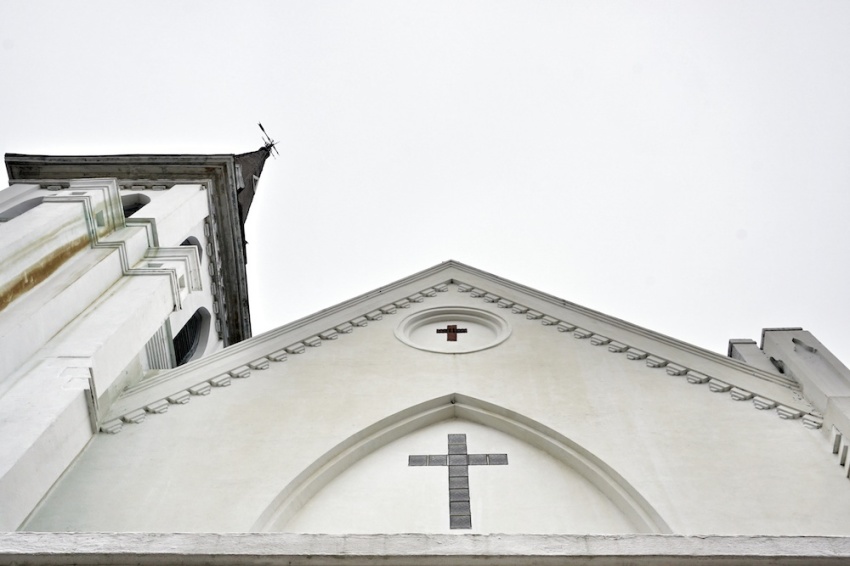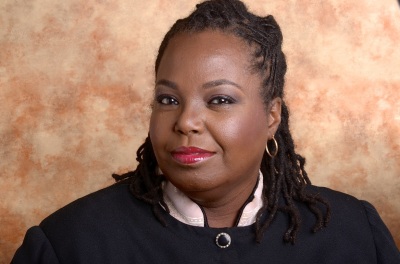AME Church had a pandemic plan ready years before new coronavirus hit

For more than a decade, the Rev. Dr. Miriam J. Burnett, a practicing physician and public health expert who serves as the medical director of the African Methodist Episcopal Church Health Commission, has been preparing her church and the wider denomination for a pandemic.
Earlier this year, as soon as she realized the new coronavirus was a global threat and long before it was confirmed as spreading across the United States, Burnett quickly made her plan available to the approximately 7,000 congregations consisting of nearly 4,000 pastors and 2.5 million members around the globe.
“As the AME Church International Health Commission’s medical director, I jumped on this very early,” Burnett told The Christian Post in an interview Monday.
Since 2008, said Burnett, the AME Church through its Health Commission has had the Church Preparation and Response to Potential Pandemicsplan and it has been revised three times since then. The latest revision came in mid-February when Burnett, who leads Historic Jones Tabernacle AME Church, held her last in-person service with her congregants.
“As members of the AME Church we must work together, follow basic infection control and behavior modification to decrease the spread of illness and disease. Faith is the key that will empower us to become educated and collaborate during these times of concern,” the pandemic plan states. It then goes on for four pages sharing guidance on social distancing and other possible interventions to manage a crisis and limit the spread of disease.
When asked how she first discussed the threat with her local church, which has about 95 members on record, Burnett said it wasn’t an abrupt shutdown. She first discussed the situation with her leadership team, then the general church body after learning how churches in Europe were being impacted by the coronavirus.
“Because I am a connectional officer, they are very in tune to what’s going on in the church worldwide,” Burnett said of her home church.

“And so when I said we’re going to take this pre-emptive strike, we had a phased approach: There would only be 10 of us in the sanctuary. We’ll video conference it (the service). The rest need to stay home and then I laid out that plan. I reviewed the four-page document with them on pandemics,” she said.
While the AME church in general has “lost a few pastors” and members to the virus, Burnett believes the impact of the virus on the first independent Protestant denomination to be founded by black people, and one of the largest Methodist denominations in the world, has been “significantly mitigated” because the church had a strong “connectional response” to the pandemic.
Meanwhile, the Church of God in Christ, America’s biggest African-American Pentecostal denomination, has reportedly lost at least a dozen to up to 30 bishops and prominent clergy to the coronavirus. Leadership meetings were still being held in mid-March, The Washington Post reported.
Burnett admitted that the AME Church benefited from the infrastructure they already had in place.
“I have an MD, an MPH and an M.Div. so I bring all three of those to bear when I make statements … and we have the blessing of having a health commission that has microbiologists, virologists, as well as healthcare professionals and mental health professionals of the entire spectrum and we come together and we make decisions collectively,” she told CP.
The pastor also noted that she previously worked with the Centers for Disease Control and Prevention in educating churches in various denominations across the country about preparing for pandemics and disasters.
In CDC Engagement With Community and Faith-Based Organizations in Public Health Emergencies, author and infectious disease physician Scott Santibañez said the federal government noticed the ability of community and faith-based organizations to respond to the needs of vulnerable, particularly minority, communities in the aftermath of Hurricane Katrina in 2005. Since then, substantial effort has been made by the government agencies to include CFBOs in public health preparedness, response, and recovery but it remains a work in progress.
InFaith-Based Organizations and Pandemic Preparedness, another report written by Santibañez and published in the Journal of the Catholic Health Association of the United States in 2007, he highlighted how church-related groups would be vital partners in getting ready for an influenza pandemic.
“During a severe influenza pandemic, people from communities around the world will be asked to voluntarily avoid gathering together, to limit the virus' spread. People will be asked to stay at home if they are sick and to minimize contact with others. The U.S. government cannot prepare for or respond to a severe pandemic alone,” he wrote.
“During such a crisis, there may be an insufficient number of doctors, nurses, hospital beds, or other countermeasures to go around. Many — if not most — communities will be affected, and as many as 40 percent of workers may be unable to work because of illness or a need to care for ill family members,” he explained.
While a majority of churches have sought to work with public health and government officials to appropriately respond to the coronavirus crisis, a vocal minority of pastors have continued to flout social distancing guidelines, citing First Amendment rights.
Burnett commented: “As a physician and public health provider, I cannot condone that. I will not.”
When churches work in partnership with public health officials she said, outcomes can be much more positive for the community.
“I’m blessed to be able to live out the mission that God gave me. I saw this coming. We’ve been talking about it for years. I’d like to be able to say that because of the Health Commission under my leadership we have made a difference. People had their pantries already stocked. They didn’t have to go run to the store for toilet paper like everybody else did,” she said.
“I’m in the First District and when we have our First District meetings, there is a disaster preparedness presentation that closes us out every time we gather. So we talk about what do you need in your pantries? What kind of things you should have in your house? Keep these things going in your house. Rotate them. We’ve been talking about that for years,” she said.
She explained that as a result of the coronavirus, various health ministries in churches and other faith-based organizations have been reconnecting.
“We’ve had a resurgence of some of us that used to work together in the National Council of Churches healthy ministry group and have started reconnecting again,” she said. “We’re talking, we’re exchanging ideas, we’re sharing resources.”
She also urged Christians not to rush into gathering inside buildings again but focus on helping the most vulnerable among them and try fellowshipping in different ways such as using online platforms.
“I would say to folk, stay at home except for the essentials. The church system has got to be the best system in knowing who the sick and shut-in are,” she said.
“You know who the people are, those who are able to go out to go to the grocery store, don’t just shop for your house. You got Mother Jones, 85 years old, we don’t want her out. So when you go to the store pick up an extra thing of milk or bread, drop it on her doorstep. Call her and say 'reach outside the door. There is food outside the door.'
“We have to do those kinds of things and we have to stay home. God has given us technology and we need to use it. There are many different ways for us to communicate and hold worship. Worship is not in a building. The church is not the building. The church is a community of faith, regardless of how we decide to express it.”
She further noted that as a result of the pandemic, members of her congregation have gotten closer despite not being able to meet in person.
“Being able to come together via telephone, … being able to gather via electronic means for worship. Corporate worship can still occur even without being in the same physical space. And it has been. Many churches are seeing a rise in participation and what I can say for my church, Jones Tabernacle AME in Philadelphia, we are closer now than we have ever been,” she said.
“In terms of relationships. I’ve had class leaders say, people call me and say, ‘I’ve talked to people I haven’t talked to other than to say hello in worship in years. And I’m now holding real conversations with them. We’re praying together. We’re talking about the Bible together. We’re doing individual Bible studies,” she said.
Last Wednesday, the Federal Emergency Management Agency highlighted a number of religious organizations for their efforts in responding to the coronavirus, including the AME church under the leadership of Burnett and her team.
“Dr. Burnett from the African Methodist Episcopal Church in Philadelphia took matters into her own hands before the virus even started to take over the country. Having an existing disaster plan in place, and four hours of editing, Dr. Burnett had a pandemic plan ready to use. With many of her churchgoers being subject matter experts in medicine and mental health, the church made multiple webinars for the public focusing on ensuring physical and mental health during this time,” a FEMA bulletin said.
The Billy Graham Evangelistic Association and the Latter-day Saints Charities were also praised for their efforts.
The BGEA, said FEMA, recruited 1,000 volunteers who are answering over 35,000 calls for prayer all over the country. In coordinating with Samaritan’s Purse, their Rapid Response Team Chaplains are also deploying to New York City and Cremona, Italy, to minister to those in need.
In coordination with Convoy of Hope, the Latter-day Saints Charities are donating food supplies and goods to food banks around the nation. They are also donating PPE nationally and internationally.



























